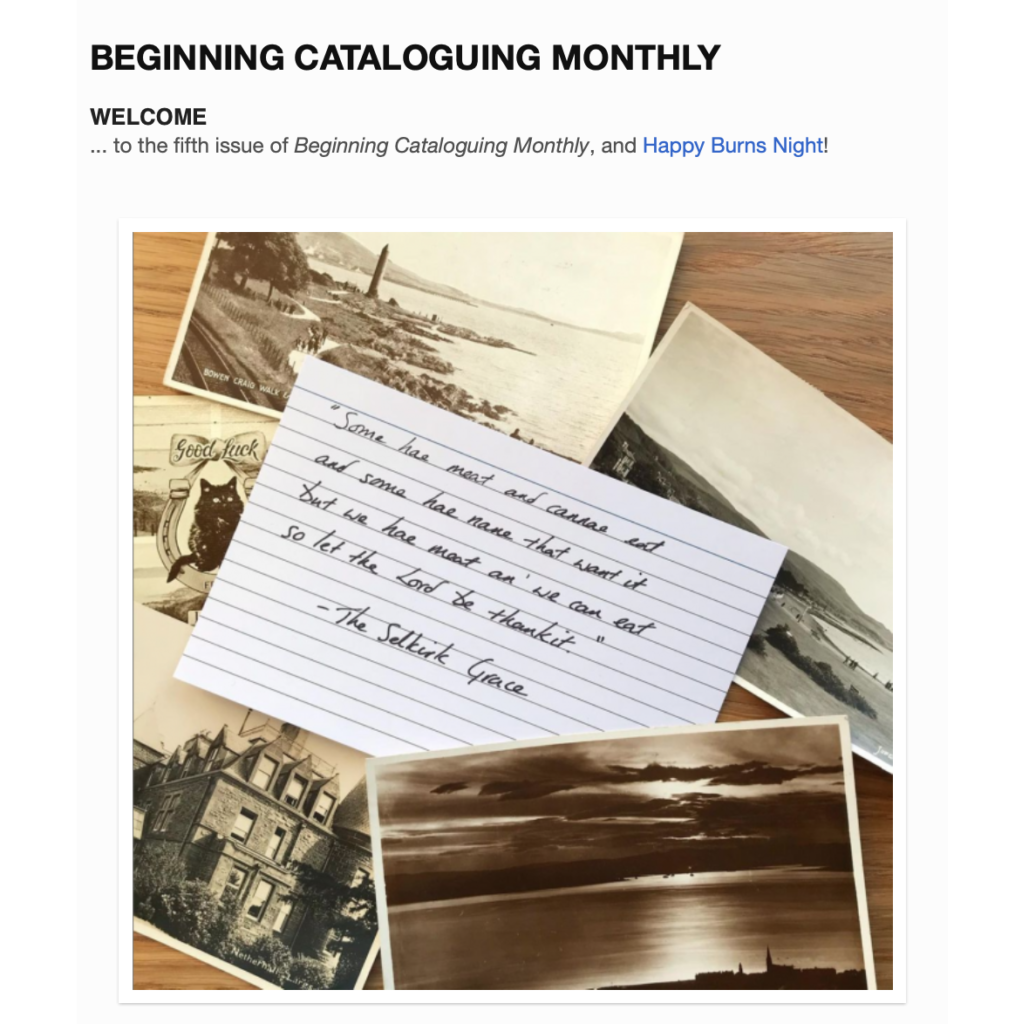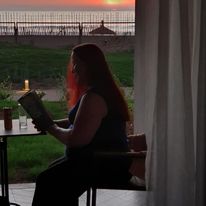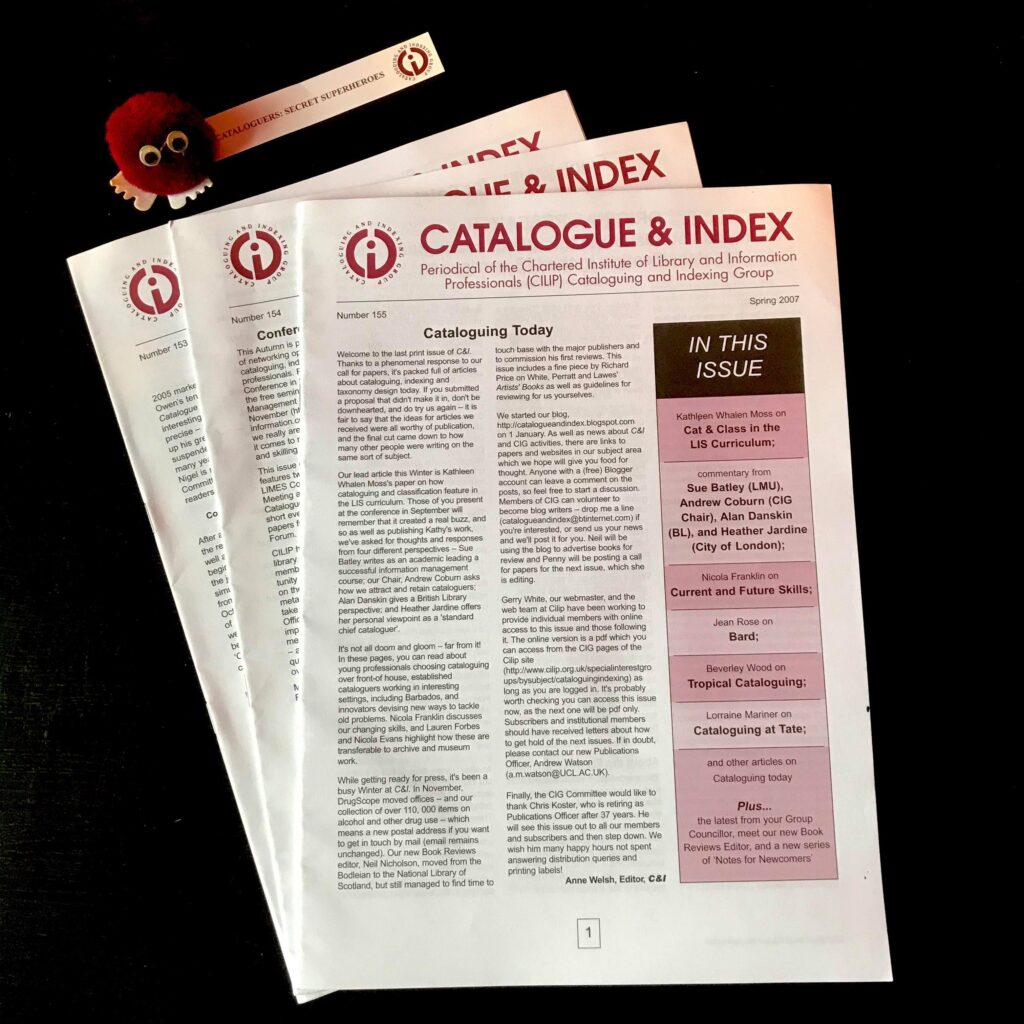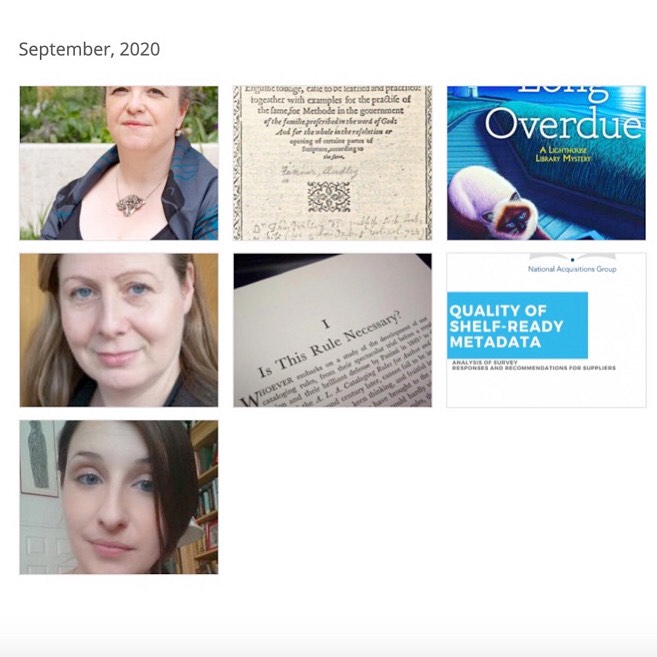
Just sent January’s Beginning Cataloguing Monthly to subscribers.
CONTENTS
CATALOGUING GAREERS – Natasha Aburrow-Jones
BEGINNINGS BOOKSHELVES
Metadata Must-read – Greta Bahnemann, Michael Carroll, Paul Clough, Mario Einaudi, Chatham Ewing, Jeff Mixter, Jason Roy, Holly Tomren, Bruce Washburn, and Elliot Williams, Transforming Metadata into Linked Data to Improve Digital Collection Discoverability: A CONTENTdm Pilot Project. Dublin, OH: OCLC Research, 2021, https://doi.org/10.25333/fzcv-0851.
Associate’s Choice – Yvonne Lewis reviews three books she read over the festive season.
Bodies in the Library – M.E. Hilliard, The Unkindness of Ravens, London: Crooked Lane, April 2021.
METADATA MUDDLE – The challenges of an artist’s book.
BEGINNING CATALOGUING LISTINGS
Publications – Articles written since the December’s BCM.
Cataloguer Catch-up – highlights from our social media this month.
Seminars – Dr Katharine Schopflin on Organisational Information (with 50% off code for BCM subscribers); Dr Karen Limper-Herz on German Bookbinders in 18th and 19th Century London; Helen Williams on the move From Cataloguer to Manager. (See all current seminars at https://beginningcataloguing.teachable.com/courses/category/seminars).
Courses – Beginning Bibliography; Beginning Cataloguing Rare Books; Masterclasses with Concetta La Spada. (See all current asynchronous courses at https://beginningcataloguing.teachable.com/courses/category/asynchronous).
CALL FOR SPEAKERS – Inviting subscribers to propose a seminar for September – December 2021, February-August 2022.
The next issue will go out just after Valentine’s Day. If you’re not already a subscriber, you can sign up here.





